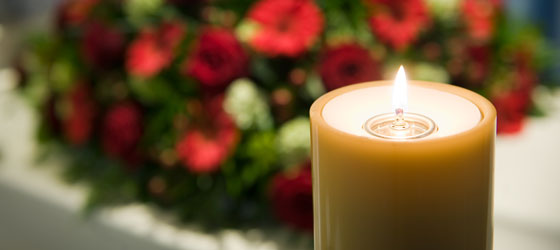Funeral Services
Why are Ceremonies Important?
Sometimes families struggle with the decision whether to have a ceremony or not. It is important to remember that the funeral is for the living. The ceremonies we observe when a loved one dies accomplish several important purposes, not only for the immediate family, but also for the entire community of friends and associates. Here are some of those important reasons for creating and using meaningful ceremonies.
While many decisions rest with the immediate family, an overly individualistic approach to funeral arrangements can create as much chaos as it resolves. People who have just suffered a loved one’s death don’t generally know what kind of ceremonies will prove best able to help them and others who knew their loved one adapt to the death. In the absence of socially-prescribed rituals, bereaved people are left to create meaningful tributes during a period in which they are emotionally overwhelmed. Our Funeral directors can help guide you during this period.
Most clinical scholars in the field of bereavement point out the “reality” function of funeral ceremonies. Even though the death certificate records a precise moment of death does not mean everyone accepts that fact emotionally. For most of us, a loved one’s death is much more of a process-requiring time to fully believe the reality. Because this realization of death is not instantaneous, funeral rituals help people gradually accept that their loved one has made the transition from here to there.
When a person dies, we tend to highlight the character qualities and values worth imitating. We choose words that describe the attitudes and behaviors of the person who died, describing her as kind, compassionate, brave, respectful, enthusiastic, generous, fun-loving, faithful, warm, peace-loving, and heroic. Effective ceremonies provide a way for mourners to say to one another what perhaps they never found opportunity to share with the deceased: how his or her life actually impacted the lives of those who are left.
If you have ever watched a state funeral, you recognize the orderliness of the service. But the memorial ceremonies of people who are not political leaders have the same function. They remind us that even though dramatically changed, life will continue in spite of the death of this individual, because life is bigger than an individual. One of the community’s important tasks in the face of death is to stand at the emotional “fork in the road” for bereaved people and lovingly point the way through the experience. Funerals help calm our anxiety.
Ceremonies can help ignite a passion for needed change. Sometimes death comes after great injustice and the funeral ceremony helps galvanize the effort to create change as witnessed in the funeral for Dr. Martin Luther King. With family permission, leaders have addressed the importance of suicide prevention at the funeral ceremonies for teens who have died by suicide. And attendance at the funeral for a young mother killed by a drunk driver reminds many people of the dangers of driving while impaired by alcohol or drugs.
Parts of a Funeral Service

- Visitation/Reception allows the family to receive friends, activate your support system, and give others an opportunity to express their concern and love for you. If the body is present, this gives friends and family one last opportunity to say goodbye.
- Music gives avenue to express through feelings what words cannot say. It plays an important role in helping people embrace their feelings.
- Readings capture our beliefs and express them in meaningful texts that comfort those present.
- Eulogy/Remembrance gives a voice to our inner thoughts and feelings about the person who died and helps us begin to embrace the meaning of their unique life. The word “eulogy” comes from the Greek eulogia which means praise or blessing. This is why we give thanks during eulogy for a person’s unique life.
- Symbols/Actions give people an opportunity to honor someone with their feelings through actions like lighting a candle, displaying a cross, or placing flowers on a casket.
- Gathering:Funerals give family and friends an opportunity to gather, share memories, and express their love and support for one another. Through community each person is strengthened, and mourners return home with a sense of loving support and feeling they are not alone.


